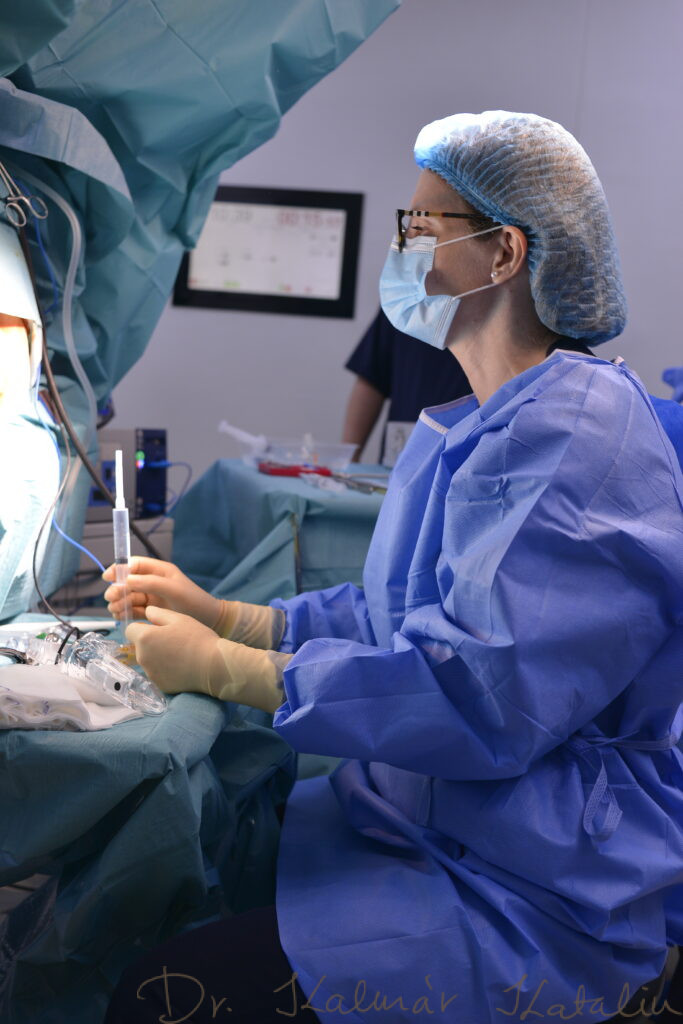- Home
- /
- Fissurectomy: Quick, Effective Laser...
Fissurectomy is the name for the surgeries we make for anal fissures, when they failed to heal on conservative treatment. Nowadays we avoid cutting out the fissure, because its base is made of muscle, so the “ectomy” in the name, referring to cutting, is outdated. Instead of cutting we rather focus on relaxing the anal sphincter muscle, mostly by Botox injection. If any cutting is involved, it is limited to the skin tag. In case this kind of “conservative operation” is not sufficient to heal a fissure, and the patient’s internal anal sphincter is long and robust, very rarely, sphincterotomy is done, which is relaxing the lower part of the internal anal sphincter by a cut. This is permanent, unlike the Botox injection, so we try to avoid it. Whichever way the anal muscle is made to relax, the wound of the fissure needs to heal up by itself, it cannot be sutured as most patient thinks
Laser can help a lot in anal fissure treatment as well. Laser “spraying” the wound surface cause a nice tissue regeneration, making the healing faster.
What to expect when going for this procedure?
Anal fissure surgery is quick, taking just 5 to 10 minutes. Since anal fissure itself is a painful condition and most of the fissure-wound is hiding inside the anal canal, necessitating the placement of an operative anoscope, the procedure still need deep sedation or general anesthesia. This means that, before the procedure you need to have a meeting with the anaesthetist. Because of the anaesthesia, a period of 6 hour fasting is required before surgery. There is no need for a thorough bowel preparation, but in case you could not go to toilet in the morning before surgery, you will be given an enema (a small bottle of washout of the rectum from below). If you prefer, your doctor can prescribe this for you, and you can give it to yourself at home in the morning. Otherwise your day care nurse will give it after you settled in at the day care unit. You will be requested to come a few hours before your scheduled procedure time for these preoperative necessities.
After the surgery you will feel no or minimal pain. You will receive a detailed explanation about the medications prescribed, and how to take them: you will be given anti-inflammatory painkillers, local anaesthetic jelly and antibiotics if necessary.
Your doctor will let you go home a few hours after the procedure, once you are fully awake, pain free and managed to eat and drink and pass urine.
Your doctor will give you a number to contact her in case of emergency as well as arrange a free follow-up visit for you within 2 to 5 days.
